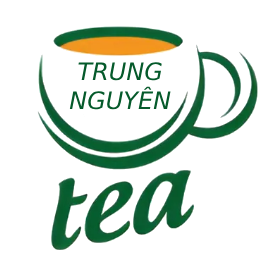Blogs
Teas for memory
In today’s fast-paced world, maintaining sharp memory and strong cognitive function is more important than ever. While a balanced diet, exercise, and mental stimulation all contribute to cognitive wellness, herbal teas have long been recognized for their ability to enhance memory and brain function.
In this article, we’ll explore some of the best teas for memory and brain health, their unique benefits, and how you can incorporate them into your daily routine for maximum results.
The link between tea and memory
Tea has been cherished for centuries, not only as a soothing and flavorful beverage but also for its remarkable health benefits. Among its many advantages, tea has been recognized for its ability to support brain function, enhance memory, and improve overall cognitive performance.
Whether you’re looking to boost concentration for work or study, protect your brain from age-related decline, or simply stay mentally sharp, incorporating the right teas into your daily routine can be a natural and effective way to support brain health.
Many teas contain powerful compounds such as antioxidants, amino acids, and polyphenols, which help protect brain cells from oxidative stress, reduce inflammation, and enhance neurotransmitter activity. Some teas also promote relaxation while improving focus, creating the perfect balance for mental clarity. By regularly consuming brain-boosting teas, you may experience improved memory retention, faster information processing, and better overall mental performance.

Best teas for memory and brain health
Certain teas have been scientifically recognized for their ability to enhance cognitive function, improve memory, and protect brain health. Packed with antioxidants, polyphenols, and other beneficial compounds, these teas can help boost mental clarity, support focus, and even reduce the risk of age-related cognitive decline. Below are some of the best teas for memory and brain health.
Green tea – The ultimate brain booster
Green tea is widely regarded as one of the healthiest beverages for overall well-being, and its benefits extend to brain health. It contains epigallocatechin gallate (EGCG), a potent antioxidant that protects neurons from oxidative damage, which can contribute to cognitive decline and memory loss. Additionally, green tea is rich in L-theanine, an amino acid that promotes relaxation while simultaneously improving focus and alertness.
The unique combination of L-theanine and caffeine in green tea provides a smooth, sustained boost in energy and mental clarity without the crash associated with coffee. Studies have shown that regular green tea consumption is linked to improved cognitive performance and a reduced risk of neurodegenerative diseases like Alzheimer’s and Parkinson’s.
How green tea supports memory and brain health:
- Enhances concentration and cognitive function.
- Protects brain cells from oxidative stress and inflammation.
- Improves learning ability and memory retention.
- Reduces mental fatigue and stress-related forgetfulness.
To maximize the cognitive benefits, drink one to three cups of green tea per day, preferably in the morning or early afternoon. Avoid drinking it too late in the day to prevent sleep disturbances caused by its caffeine content.
Ginkgo biloba tea – Nature’s memory enhancer
Ginkgo biloba is one of the oldest and most well-researched herbal remedies for brain health. Derived from the leaves of the Ginkgo biloba tree, this tea has been traditionally used to enhance cognitive function and improve circulation to the brain. The primary way ginkgo biloba works is by increasing blood flow and oxygen delivery, which helps neurons function more efficiently and reduces the risk of cognitive decline.
Regular consumption of ginkgo biloba tea has been linked to improvements in memory retention, mental sharpness, and even mood stability. It is often recommended for individuals looking to prevent age-related memory loss and support long-term brain health.
Key benefits of ginkgo biloba tea:
- Boosts blood circulation to the brain, enhancing cognitive function.
- Improves short-term and long-term memory.
- Reduces symptoms of brain fog and mental fatigue.
- May help slow cognitive decline in older adults.
Ginkgo biloba tea is best consumed once or twice daily, particularly in the morning or afternoon. Since it may have a mild stimulating effect, avoid drinking it late in the evening.
Ginseng tea – The natural brain energizer
Ginseng is a powerful adaptogenic herb known for its ability to boost mental performance, energy levels, and stress resilience. The active compounds in ginseng, called ginsenosides, have been shown to protect neurons from damage, improve neurotransmitter function, and support overall brain health.
Ginseng tea is particularly beneficial for individuals experiencing mental fatigue, stress, or cognitive decline. It can help sharpen focus, enhance memory, and improve learning ability, making it an excellent choice for students, professionals, and older adults alike.
How ginseng tea supports brain function:
- Increases mental clarity, focus, and concentration.
- Reduces stress-induced memory loss.
- Enhances overall cognitive function and recall ability.
- Supports brain health and may help prevent neurodegenerative diseases.
To experience the full benefits, drink one cup of ginseng tea per day, ideally in the morning or early afternoon. Since ginseng can be stimulating, avoid consuming it late in the evening to prevent potential sleep disturbances.
Peppermint tea – Refresh your mind and memory
Peppermint tea is widely known for its cooling and refreshing properties, but it also offers significant cognitive benefits. Studies have found that menthol, the active compound in peppermint, can stimulate brain activity and improve memory, concentration, and alertness. Even the aroma of peppermint has been shown to enhance cognitive performance.
Beyond its brain-boosting effects, peppermint tea helps alleviate stress and anxiety—two factors that can negatively impact memory and cognitive function. By promoting relaxation and reducing mental fatigue, peppermint tea creates an optimal state for learning and information retention.
Why peppermint tea is great for memory:
- Increases mental alertness and focus.
- Enhances memory and cognitive function.
- Reduces stress and anxiety, which can impair memory.
- Helps fight mental fatigue and refreshes the mind.
Since peppermint tea is caffeine-free, it can be enjoyed any time of the day, whether in the morning for a mental boost or in the evening to unwind and relax.
Rosemary tea – The herb of remembrance
Rosemary has been associated with memory enhancement since ancient times, and modern research confirms its benefits. This aromatic herb contains carnosic acid and rosmarinic acid, both of which help improve blood flow to the brain, protect against oxidative damage, and support long-term cognitive function.
Drinking rosemary tea can improve memory retention, enhance focus, and elevate mood. In fact, research suggests that even inhaling the scent of rosemary essential oil can lead to better memory performance.
How rosemary tea supports brain health:
- Enhances memory retention and recall ability.
- Increases blood circulation to the brain, improving focus.
- Protects against neurodegenerative diseases like Alzheimer’s.
- Helps reduce brain fog and mental fatigue.
For best results, drink one to two cups of rosemary tea per day, either in the morning or early afternoon. It can also be used in combination with other brain-boosting teas for an added cognitive boost.

Tips for maximizing benefits
Drinking teas for memory and brain health is a simple yet powerful way to support cognitive function. However, to get the most out of these teas, it’s important to follow some best practices. The way you brew, consume, and incorporate these teas into your daily routine can significantly impact their effectiveness. Below are some essential tips to help you maximize the benefits of memory-boosting teas.
Choose high-quality, organic teas
The quality of the tea you drink plays a crucial role in its effectiveness. Always opt for organic, high-quality, and minimally processed teas to ensure you are getting the highest concentration of antioxidants and beneficial compounds.
- Look for loose-leaf teas instead of tea bags, as they often contain fresher and more potent ingredients.
- Choose organic varieties to avoid pesticides and harmful chemicals that could reduce the health benefits.
- If possible, purchase from reputable sources that prioritize quality and purity.
Brew your tea properly
To extract the maximum benefits from your tea, it’s important to brew it correctly. Different teas require different temperatures and steeping times to release their full potential:
- Green tea: Use water at 160–180°F (70–80°C) and steep for 2–3 minutes to preserve antioxidants and avoid bitterness.
- Ginkgo biloba tea: Steep in hot water (190–200°F / 88–93°C) for 5–10 minutes to maximize flavonoids and circulation-boosting compounds.
- Ginseng tea: Simmer gently for 10–15 minutes to extract the adaptogenic properties.
- Peppermint tea: Use boiling water (200–212°F / 93–100°C) and steep for 5–7 minutes for the best aroma and cognitive benefits.
- Rosemary tea: Steep in hot water (190–200°F / 88–93°C) for 5–10 minutes to activate its memory-enhancing compounds.
Avoid over-steeping, as it can lead to bitterness and reduce the effectiveness of certain delicate compounds like L-theanine in green tea.
Drink at the right time for maximum effect
The timing of your tea consumption can influence its effects on memory, focus, and relaxation. Here’s when to drink different teas for optimal benefits:
- Morning (for mental clarity & focus): Green tea, ginseng tea, ginkgo biloba tea.
- Afternoon (to combat fatigue & enhance alertness): Green tea, peppermint tea, rosemary tea.
- Evening (to relax and reduce stress-related memory loss): Peppermint tea, rosemary tea.
Since green tea, ginseng, and ginkgo biloba tea contain natural stimulants, avoid drinking them late at night to prevent sleep disturbances.
Stay consistent for long-term results
Drinking memory-enhancing teas occasionally may provide temporary benefits, but consistent consumption is key to experiencing long-term cognitive improvements. Try to:
- Drink at least 1–3 cups daily, depending on the tea.
- Incorporate tea into your morning or afternoon routine to support memory and focus throughout the day.
- Stay hydrated by drinking water alongside tea to prevent dehydration, which can negatively affect cognitive function.
Pair teas with a brain-healthy lifestyle
While these teas can boost memory and brain health, they work best when combined with a healthy lifestyle:
- Eat a brain-friendly diet: Include omega-3-rich foods (salmon, walnuts), antioxidant-rich fruits (blueberries, oranges), and leafy greens (spinach, kale) to support cognitive function.
- Exercise regularly: Physical activity improves blood flow to the brain, enhancing memory and mental clarity.
- Prioritize quality sleep: Lack of sleep impairs memory; aim for 7–9 hours per night.
- Manage stress: Chronic stress damages neurons, so practice meditation, deep breathing, or light stretching.
Combining memory-enhancing teas with a balanced diet, regular exercise, and good sleep habits will provide the best long-term cognitive benefits.
Incorporating memory-boosting teas into your daily routine is a simple yet powerful way to support brain health, enhance focus, and improve cognitive function. However, while these teas can be highly beneficial, they work best when combined with a healthy lifestyle—including a nutrient-rich diet, regular exercise, quality sleep, and stress management. Start sipping your way to better memory and mental clarity today!
